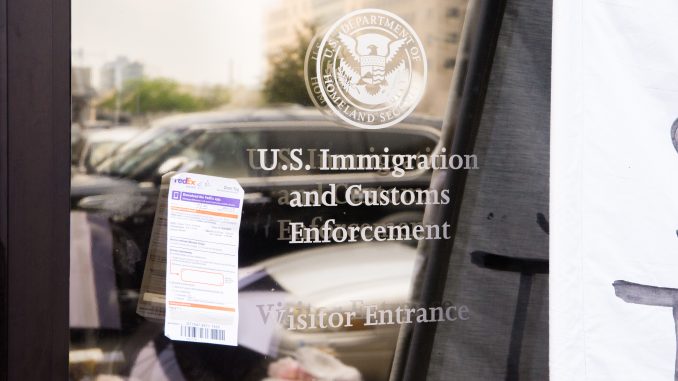
United States Immigration and Customs Enforcement has reportedly frightened away undocumented witnesses and victims at local Pennsylvania courthouses, according to a 2019 report by the Sheller Center for Social Justice at Temple University.
The report, which was released in January, found multiple instances of ICE apprehending undocumented people at courthouses in 13 Pennsylvania counties, 11 of which have the highest immigrant populations in the state.
In 2017, The Philadelphia ICE office arrested more immigrants without criminal convictions than all other regional offices in the nation, according to the report. This is despite Philadelphia’s sanctuary city status, which means city officials do not share undocumented immigrant records with ICE.
Jennifer Lee, a law professor and director of the Social Justice Lawyering Clinic at the Sheller Center, called these reported arrests a “systemic issue” and a severe problem for the fair administration of justice by the courts.
“It’s [ICE] arresting folks at the courthouse,” Lee said. “It’s creating intimidation and fear so that people do not want to show up at the courthouse and this is severely problematic because the courts need to run. They need people to trust the process, and it’s really interfering with the integrity of the court system.”
The most common effect of ICE detainment at area courthouses is fear among immigrants attending to legal matters, the Sheller Center report found. Nearly 80 percent of legal service providers said their clients who are immigrants “expressed fear of going to court or chose not to pursue a case because they may be arrested or detained by ICE,” according to the report.
“Consider a domestic violence victim who needs to go to court to file protection of an abuse order from their abuser,” Lee said. “But they don’t want to go to court because they’re scared about the ramifications of being arrested [by ICE].”
Several law students who work for the Sheller Center’s Social Justice Lawyering Clinic produced the report with help from Pennsylvania coalitions and law institutions. Sundrop Carter, the executive director of the Pennsylvania Immigration and Citizenship Coalition, and Sam Milkes, the executive director of the Pennsylvania Legal Aid Network Inc., supported the project.
Law students and report authors Patrick Gordon, Kelley Grady and Shaqueil Stephenson did not have contact with undocumented immigrants, nor did they meet with any members of ICE. Surveys were sent to advocacy groups, like the ICE Out of Courts Coalition, and attorneys who work directly with undocumented immigrants.
There were about 50 respondents to the Sheller Center survey — which started in August 2018 — out of 100 total individuals and organizations contacted, said Grady, a third-year law student. The most interesting responses came from social service providers, she said.
She recalled a particular response from a service group in Pittsburgh about helping an undocumented father appear in court to claim custody of his child without getting detained by ICE.
“All the people in the organization, priests, his friends, basically had to swarm him so he wouldn’t get seen by ICE officers,” Grady said. “It’s very impactful, and what it shows is that [advocacy groups] know this is a problem, and they figured out what they have to do and it’s so extreme.”
While Grady understands ICE is acting under executive orders to detain suspected undocumented immigrants, she said the agency’s presence is affecting the entire court process. The report offered suggestions based on other states’ responses to ICE detainment at courthouses, like in California, where the state attorney general said court personnel should be instructed not to cooperate with the agency.
The report made several recommendations to the Pennsylvania Supreme Court to permit local policies that limit ICE enforcement activities around courthouses and prohibit court personnel from collecting immigration statuses from individuals.
“It’s important to remember that this is something the Pennsylvania court has the power to control, and it shouldn’t have to be something radical or political,” Grady said. “It should just be them protecting the integrity of the justice system.”



Be the first to comment